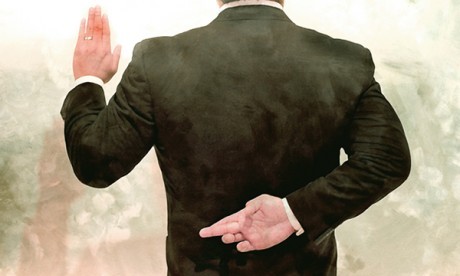A long time ago I went out with a guy who cheated at Monopoly. It was a game with a few of his friends, which I didn’t think was meant to be competitive at all. However, I was surprised to discover that this so called boyfriend was happily pilfering money from the treasury when everyone else was filling up glasses of wine and reaching for popcorn. It wasn’t a big deal but I remember feeling pretty confused about what was the whole point of the exercise – it wasn’t as though winning at Monopoly was going to be a big metaphor over who was going to win at life. Though it turned out that his cheating at the game was a metaphor of his cheating on relationships. Neither done particularly well, I may add.
When it was brought to this guy’s attention that slipping himself a few extra $100 bills when no one was looking constituted dishonesty, he protested that it was all just a joke. He was also very quick to distance himself from any label of being “a cheater”.
In his best-selling book The (Honest) Truth About Dishonesty author Dan Ariely provides some of the answers about lying and why we keep doing it. In his book, Ariely outlines the unsurprising fact that almost everyone tells lies. After all, who hasn’t told the odd white lie for social convenience? I once honestly answered a friend who had asked if she had gained weight. It resulted in tears and my conscientious effort in the future to always answer such questions in the negative no matter how big the bulge.
Though many of us may tell lies to avoid confrontation, one of the main reasons is undoubtedly to get ahead. Whether in our careers, while doing our taxes or playing sport – the ugly truth is that unethical behaviour is often seen as the way to conquer all. But what Ariely argues is that we are also quick to believe our own lies. Continue reading
Sources
- Elizabeth Byrne in Daily Life
- Image: The News
Additional reading
News category: Analysis and Comment.




